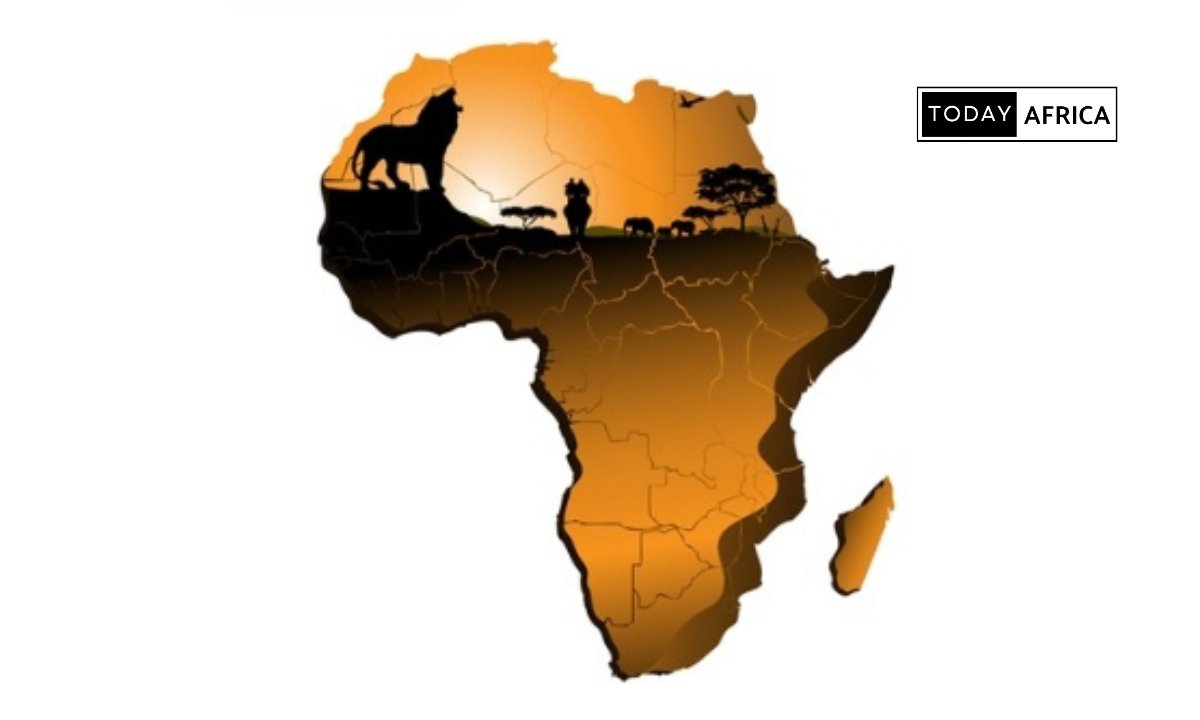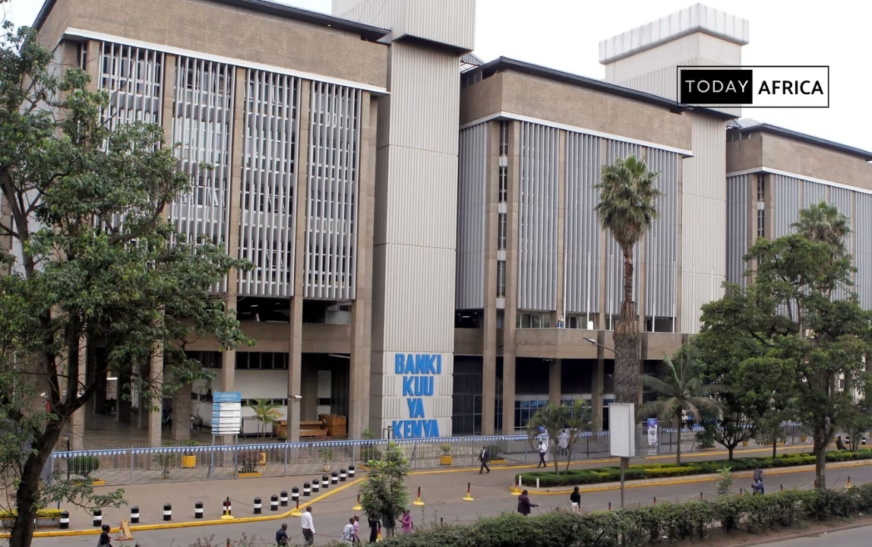When Atamelang Free speaks about her business, it’s not just about the products; it’s about the well-being of the customers. What started as a search for purpose during a career crossroads has evolved into a wellness brand rooted in sustainability, self-confidence, and social impact.
Atamelang is not your typical entrepreneur. With a degree in Business Management, an honors in Entrepreneurship, and self-taught skills ranging from graphic design to project management, she calls herself an “all-rounder”.
She’s a virtual assistant, designer, author, trainer, and the founder of Skin Free Soaps, a company she launched in 2019 to create plant-based skincare and aromatherapy products that nourish both body and spirit.
But beyond the products lies a mission: empowering marginalized communities, advancing the circular economy, and making sustainable living more than a buzzword.
In this interview with Today Africa, Atamelang Free shared her childhood entrepreneurship instincts, her struggles with funding, and her redefinition of what it means to build a purpose-driven business.
Please tell us more about yourself
“I’m an entrepreneur from Botswana,” Atamelang begins, “a leader, and someone deeply passionate about sustainable development.”
But those are modest words for a woman who blends business, activism, and art with equal ease.
With a degree in Business Management and an honors degree in Entrepreneurship, Atamelang Free has built a life around curiosity. She’s taken short courses in project management, graphic design, and even virtual assistance.
“I like being an all-rounder and learning new things,” she says.
Her growth has been shaped by experiences in elite programs: YALI, Tony Elumelu Foundation, the African Women Entrepreneurship Program, MOGi — a Global Leadership School for Changemakers — and the Showcase Her program by ImpactHer.
But she isn’t only an entrepreneur. She’s also a poet. When a friend in the UK, Dimeji, curated an anthology titled The Big Black Theory, Atamelang’s voice joined others from Africa and the diaspora.
And in 2023, her love for the planet took center stage when she helped organize Botswana’s first international recycling and waste management summit. It opened her eyes to how sustainability and enterprise could merge.
“At my core, I’m driven by the desire to live a purposeful life,” she reflects, “and make a positive impact in my community.”
How do you manage being a virtual assistant, entrepreneur, author, and designer?
Balancing so many hats isn’t easy.
“I’m not perfect at time management,” she confesses. “It can get overwhelming.”

But she’s developed habits to help her cope. She starts each day with intention. “Always know what you’re going to do the next day, and stick to your program. Don’t let distractions take over.”
When she worked remotely with a client in Canada, the time zone difference turned into an advantage. “I’d work with her in the evenings, then focus on my own business during the day. So it wasn’t so stressful to do.”
Organization is her secret weapon. And when opportunities come — to train, collaborate, or build partnerships — she always checks her calendar first.
Read Also: Peter Browne on Using Tech, Faith, & Innovation to Empower Emerging Farmers
What inspired you to start your own business?
Entrepreneurship wasn’t a fallback plan. It was always in her bones.
“In high school, I did accounting, business management, and computer science so that I could do my own accounting,” she recalls.
She joined Junior Achievement Botswana (JAB), a student business club that further ignited her interest.
So when her job became uncertain in 2019, she turned a long-held ambition into action.
She started with hotel amenities. But then she discovered plant-based skincare and fell in love with its possibilities — not just for product development but for teaching others too.

“At Skin Free Soaps, we’re not just about the product. We train marginalized groups like women and young people in bar soap making and entrepreneurship,” she says.
This means if you were not almost out of a job, you wouldn’t have become an entrepreneur?
“Yes and no,” she says.
She had never worked in a strict corporate office. Her previous company offered a different kind of experience — and when they restructured, the offer was clear: stay and take a pay cut.
“I wanted financial independence and I needed to control my time. I wanted a business that could make a difference in the world.”
Around that time, she joined MOGi — a changemaker program that helped her structure her vision.
“It helped me know what I want and have a purpose-driven business — not just a business for the sake of it.”
That clarity made her reject the job market altogether. She was building her own business.
Read Also: Ayoola Ogunyomi on Bridging the Investment-Exit Gap in Africa’s Startup Ecosystem
Tell us more about your Skin Free Soaps, including your products
Skin Free Soaps is more than just a skincare line. It’s a wellness experience.
“We formulate plant-based skincare and aromatherapy products,” she explains. “Our approach is holistic.”
At its core, the brand is about restoring confidence. “We’ve discovered that various skin conditions can cause mental distress. We want our products to heal from the outside in.”

Their product range is extensive: lotions, facial serums, bar and liquid soaps, and hair products. A standout is their lotion candle — a creative blend of wax that melts into a nourishing skin oil.
They recently rebranded, with packaging that highlights essential oil benefits — like lavender’s calming effects.
“We want our customers to know what each ingredient does — not just to their skin, but to their well-being.”
What challenges have you faced and how did you overcome them?
Starting a business with only savings was no small feat.
“I had no external finance. I had to move back home to cut costs.”
But money wasn’t the only challenge. Balancing personal goals with the need to generate income from a brand-new business was daunting.
“And then there’s navigating a new market,” she adds. “You have to build brand awareness from scratch.”
Her solution? Step out. Apply for programs. Say yes to opportunities.
“I’ve collaborated with a company in Nigeria to train people in soap-making. And I’m now working with a friend, founder of ‘Le Havre Cosmetics’ in Lesotho, on an entrepreneurship therapy program — for both men and women.”
This community-centered mindset took her to the 2023 Intra-African Trade Fair in Cairo, where she showcased her brand to a global audience.
“You have to take a chance on yourself.”
What unique quality separates your brand from others?
In an industry flooded with new products, authenticity matters.

“There are many skincare brands out there,” she says. “But I believe in being real. Be clear on who you are and what your brand stands for.”
Skin Free Soaps differentiates itself by giving back to society.
“We train marginalized groups. We participate in sustainability programs. We’re creating a circular economy.”
One project especially excites her: turning used hotel oil into soap — a simple, effective way to reduce waste while creating products.
“These little things help us stand out,” she says. “They make a difference.”
Read Also: Why Fana Haregot is Building More Than a Business, She’s Building Hope
Do you train these women and youths for free?
Some trainings are free. Others are paid.
“In December, we worked with a local orphanage,” she recalls. “We trained caretakers to make soap. The idea was to reduce toiletry costs and maybe generate income for food.”
She also offers paid sessions — both online and in-person.
“This also feeds into our revenue,” she adds, showing the dual impact and sustainability of her model.
Besides starting your business with your savings, have you raised capital?
Grants? She’s applied — often — but hasn’t landed one yet.
What she does have is a support system.
“I have a very supportive family. When the business needs help, I can reach out to them or to friends.”

As for loans: “I haven’t gone that route yet. It’s quite complex here to get a business loan from local financial institutions.”
Still, she keeps pushing. The mission is too important to stop.
What marketing strategies do you use to attract and retain your customers?
For Skin Free Soaps, the most powerful marketing strategy doesn’t come in the form of digital ads or sleek billboards. It comes from people.
“The thing that’s actually worked for us is word of mouth and referrals,” she says. “Happy customers are our biggest promoters.”
That trust — built through results — is the lifeblood of her brand. Social media platforms like Facebook, Instagram, and WhatsApp serve not just as promotional tools, but as open journals of transformation.
Before-and-after photos stand as quiet but convincing evidence. Skincare tips are shared like secrets between friends. And giveaways, live sessions, and natural wellness education are woven into her digital tapestry.
But she doesn’t stop at screens. She shows up.
“We attend expos and trade shows,” she says, “because nothing beats one-on-one engagement.”
These events aren’t just sales opportunities—they’re learning grounds, talent pools, and recruitment fairs rolled into one.
Collaborations and partnerships are also part of her strategy. “Leverage your network,” she adds, “because your network is your net worth.”
It’s not all just creams and oils. It’s community, curiosity, and a commitment to making people feel seen.
Read Also: How Christopher O. Fallah Empowers Liberia’s Unbanked & Offline Citizens
How do you hire your employees and make them believe in the vision of the brand?
Before hiring anyone, she got to know every inch of her business. From designing labels to mixing ingredients, she mastered it all.
“That’s why I’m all over—learning how to design and all those things,” she says with a laugh. “Because I want to be an all-rounder.”

That knowledge isn’t about control; it’s about clarity. “When I bring somebody on board, I already know what I want and how it’s supposed to be done.”
But it’s more than just technical fit. “We make sure the people we recruit are into sustainability,” she explains. “People interested in giving back to society—that’s a very big part of our business.”
For her, hiring is as much about shared values as it is about skills. It’s about creating a team that believes in the circular economy and sees community upliftment not as charity but as a strategy.
How do you know that they believe in the core values of the business?
“I meet them at expos,” she says simply. That’s where the real magic happens — outside the job boards, in the field. “
You get to have conversations with people, and you know where everybody’s standing.”
She recalls a training session she held for orphanage homes.
“I would like to incorporate that into Skin Free Soaps,” she says, eyes lighting up. “We’re training these young people… and seeing who would be interested in working with us.”
It’s a human-centered hiring process, driven by authenticity and proximity, where potential isn’t just measured in experience — but in heart.
How is your business doing today and what does the future look like?
Skin Free Soaps is in a phase of meticulous evolution. One of her products has successfully received certification — a breakthrough moment.
“We’re trying to get into the retail space and export market for that product,” she says.
The goal? Use that income to certify the rest of the product line.
Certification is expensive, slow, and full of red tape. But she’s determined. “We’re also working on our website,” she adds, after a customer feedback study revealed that accessibility was the top demand.
Yet her most ambitious plan is a dream rooted in something deeper than skin: a wellness hub.
“Our brand is not just about skin,” she insists. “It’s about holistic health.”
She envisions a space where products are sold, training sessions are held, and perhaps even an in-house psychologist is available.
“If you feel good, you eventually look good,” she says. It’s a radical idea in a commercial world — prioritizing wholeness over just appearance.
Read Also: How Buyiswa Twala is Reviving Dead Soil and Fighting Hunger in South Africa
How have you handled setbacks and failures as an entrepreneur?
She didn’t sugarcoat it. “Entrepreneurship can be quite lonely,” she admits.

Setbacks hit hard. There are rejections, failed grant applications, and moments of self-doubt.
“I’ll cry about it for two days,” she says with disarming honesty, “and then I’ll get back up.”
She reaches out to program facilitators for feedback. She calls peers who are ahead of her. “I ask them, how are you doing it? How did you get there?”
It’s a ritual of resilience. A cycle of fall, reflect, rise.
In your journey as an entrepreneur, what lesson have you learned so far?
“Start small, but dream big,” she says, recounting a painful lesson. Early in her journey, she excitedly bought more ingredients than she needed — only to see them expire before hitting the market.
“I hadn’t assessed what the customer actually needed.”
Now she listens more. “What you need is not necessarily what the customer needs.”
Resilience, she believes, is everything. Build relationships, not just sales. “Go back and ask — how did this product help you? Do you have feedback?”
She’s constantly evolving, continuously learning. “Every year, I attend at least four programs,” she shares. “You don’t need perfect conditions to begin. Just start.”
How do you get your raw materials?
Botswana, she says, has limited access to raw materials. Most come from South Africa.
“I’ve found a couple of reliable suppliers,” she notes, but even that system is fragile. Prices fluctuate, border delays happen, and logistics can be a nightmare.
“You cannot order when your resources have already depleted,” she warns. “Otherwise, you’ll lose customers — and you do not want to lose customers.”
Where possible, she sources locally. Not just to reduce costs, but to support other small businesses. “We all rise together,” she believes.
Read Also: African Startup Stories of 16 Entrepreneurs We Interviewed
How do you navigate the economic situation of Botswana as a businesswoman?
Botswana offers a paradox: a stable economy with immense potential — but layered with bureaucratic friction and high costs.
“You have to stand out and be loud to attract good business,” she says.

But even in this, she finds purpose. “Embrace social impact as a competitive edge,” she advises. “Do good for the community, and let that set you apart.”
She’s adapted to inflation by changing her packaging to recyclable materials. She’s adjusted pricing—but always makes sure customers understand the why behind it.
Certification remains a bottleneck. “We don’t have regulations here,” she explains. “So I had to go to South Africa to certify. That again, is very expensive.”
So she networks. She learns and she adapts. “Invest in scalability, even when it’s tough,” she urges. Apply for programs. Reach beyond borders.”
What advice would you give to others who want to start their own business?
“Resilience,” she says without hesitation.
“You will get so many no’s. But don’t be afraid to ask. You’re not going to die.”
She chuckles at the thought. Feelings might get hurt, yes — but growth is on the other side of rejection.
“Start where you are, with what you have. Do not overwhelm yourself. Take small steps and be willing to learn.”
Every year, she adds something new to her toolkit. Personal growth, business skills, global perspectives. “Attend programs. Apply for grants. Talk to people.”
And, she emphasizes, find someone to talk to. “Entrepreneurship is long. Find someone — anyone — who will help ground you.”
Start early, she says. Start now.
Contact or follow Atamelang Free:
Leave a comment and follow us on social media for more tips:
- Facebook: Today Africa
- Instagram: Today Africa
- Twitter: Today Africa
- LinkedIn: Today Africa
- YouTube: Today Africa Studio
















